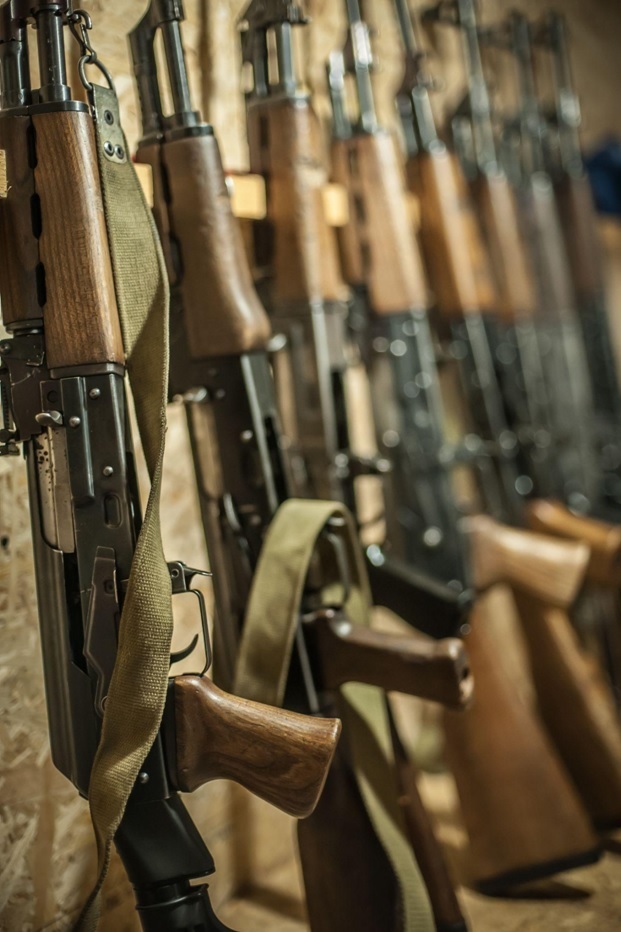Surplus Firearms: When (and When Not) to Buy
Dec 16th 2024
Shopping for a used gun or a surplus firearm is a little different from shopping for a new one because rarely if ever do you have any sort of guarantee before purchasing.
This places a great onus of responsibility on you, as well as a requirement for a great deal of knowledge. Let this short guide help you determine when there are deals you should pass up.
The Warning Signs
First things first, let’s take a look at some of the things that should give you pause when you uncover them.
Excessive Visible Wear or Damage
The most obvious red flag when shopping for a used, surplus firearm (or really, anything that’s used) is the presence of excessive visible wear or damage.
Now, some wear is to be expected on any used gun, but severe wear to the point of damage should be avoided.
For instance, inspect the barrel for signs of bulging, bending, dents, cracks, rust, pitting, and other signs of obvious damage. All of these are signs that you should pass on the rifle.
Inspect the stock as well. For wood-stocked surplus firearms, minor wear, flecks and chips are usually not cause for concern, but large cracks certainly are. This is especially true if the cracks traverse the stock far along the grain.
The same goes for the inside of the bore, which you should get permission to check with a bore light from the seller. It should be clean, shiny, and without thick fouling deposits, rusting or corrosion.
As for the action and controls (including the trigger) they should be tight and crisp, without any excess play or looseness in any fittings. Such can be indicative of damage.
If the Seller Won’t Allow Inspection
This is a hard stop. You need to be able to inspect the surplus firearm in question closely and any seller that will not let you do so should be passed by.
If the seller won’t let you inspect the gun he or she either expects you to take his or her word for its functionality, is hiding something problematic, or is uncomfortable showing you the gun.
Regardless of which case applies (or as it might be, a combination of them) it’s cause to look elsewhere.
Controls Are Inoperable or They Malfunction
Before you seriously consider purchasing any surplus firearm, you should inspect the action and all controls thoroughly to make sure they are in working condition.
Work the action several times, to ensure it locks (if applicable) and that action releases work as intended. The lever, slide, or bolt (or other action release mechanism) should lock or close firmly but also release easily.
On firearms with a safety inspect the safety mechanism to ensure that it works properly. Get permission before pulling the trigger as the seller may like to inspect the firearm or load a snap cap before you do so.
The trigger is another thing to check. Do not buy a gun if the seller will not let you test the trigger because the trigger can make or break the gun. On some platforms, it might be easy to replace, but on aging surplus models, if you buy a gun with a bad trigger you might be up a proverbial creek.
If the firearm accepts a detachable box magazine, charge and drop the mag a few times to make sure that both the magazine catch and release work as intended. If possible, ask the seller to load a few snap caps and cycle the action manually to see that the action feeds, extracts, and if applicable, ejects the snap caps.
If the Surplus Firearm Has Been Obviously Modified

Lastly, one condition in which you might want to pass on the purchase of a surplus firearm is if there have been any modifications made, particularly if it seems like the modifications in question may have been made in some sort or other of inadvisable fashion.
Say, for instance, that you’re looking at a surplus shotgun like an 870 that accepts interchangeable chokes, but the previous owner cut the barrel down.
One, you need to be cautious of the length as the required length of a shotgun barrel is mandated by law, and two, if the barrel’s cut down, the threads will be bypassed (they’ll be gone) and you will no longer be able to use interchangeable chokes with it.
That’s just one example but it’s the sort of thing to look out for when you’re shopping for surplus and used guns.
When (and Why) to Buy a Surplus Firearm
All this being said and done, shopping surplus firearm deals can be a great way to find rare guns in good condition, as well as to get some models at a very competitive price.
If these are the reasons you are shopping surplus, just keep to the pointers outlined here and you should be able to make a better informed decision one way or the other.

